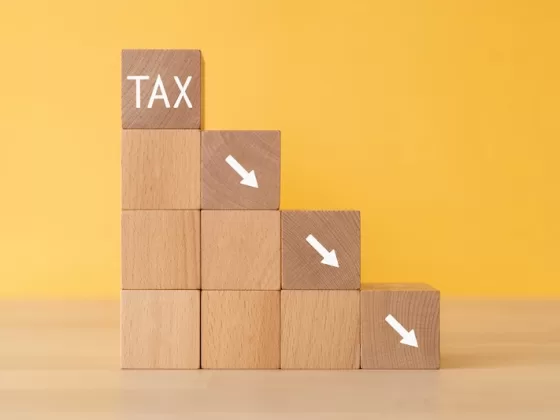After purposely holding this report back for about a month, to await for the usual “street chatter” to die down a bit, it is time for some more reflective consideration on the state of the Ecuadorean economy. In mid-October, the respected Fitch Rating Agency, once again upgraded the Ecuador economic, long-term credit rating to B, from a previous B- rating. While still considerably below “investment grade” status, it is not only a respectable rating for an emerging market, but is a far cry improvement from the economic debacle of just 12 years ago. Why is it, then, that more politicized fountains of data are somewhat dismissing this dynamic economic growth and credit enhancement in Ecuador?
Fitch raised the credit rating citing faster economic growth and increasing financial stability. Pretty straightforward. Not a great deal of room for ambiguity. Fitch also quietly did something else, which it had not done previously for Ecuador. Citing the long-term outlook rating, Fitch deemed Ecuador to be stable. Meaning that no only were Ecuador’s current prospects improving, but that under the Correa Administration economic reforms, the improvements were considered sustainable, leading to a long-term prognostication of stability.
Respectfully, if the same rapid economic progress had been made in most any other country in the world, over the same short period of time, I would imagine most media outlets and official global government sources would be heralding this accomplishment as a “Miracle Economy”. Why not Ecuador?
Well, before we explore that, let’s dig deeper into the current Fitch assessment. The venerable firm assessed Ecuador’s new credit rating with complimentary assertions about the continued healthy growth performance on a national basis, underpinned by sound principles of monetary and financial stability and a steady easing of external and fiscal financing risk factors. Furthermore, in what could Fitch’s most profound and impactful observation, they note that Ecuador is benefitting from favourable oil prices and the ready availability of funding from China and other multilateral lenders. Embrace that last comment, firmly in the back of your mind.
While certainly the windfall profits from Ecuador’s participation in OPEC and the Chinese funding have propelled its current economic growth, it can’t be denied that its immediate past history and, quite ironically, perhaps the central catalyst to its economic spark, has weighed Ecuador down in the Western press. In the period between 2008-2009, Ecuador defaulted on approximately $3.2 billion USD of international bonds, by a USA-led coalition of lenders. Whatever personal moral or economic weight one chooses to lay at the feet of such a dramatic and drastic decision, President Correa was clear that a great deal of the World Bank and IMF funding was geared towards providing an initial economic boost, followed by a life-long dependency on ever increasing sums of debt, ultimately weighing down the very economic progress the loans initially sparked. In essence, a quintessential case of the cure, being worse than the illness. Correa bit the bullet and basically conceded to having Ecuador go it alone.
The immediate result from the international financing community and the mainstream media was predictable. Ecuador would endure an economic collapse and find no willing lenders for a long period to come. Here we are, 12 years later, harken back to the previous observations by Fitch’s most recent upgrade – “…the ready availability of funding from China and multilateral lenders…” Reality trumps the best of predictions and Correa’s gamble paid off dramatically.
However, one does admittedly wonder if such a gambit would have worked, if orchestrated by a lesser mind than Correa. A USA trained economist and a decisive personality, Correa had all the required skill sets at hand to ensure success, with the ever increasing demand for oil well underpinning Ecuador’s chief export and assuring the country of “economic sustenance”. A nation less well positioned with nation less well-positioned with natural resources, or led by a less charismatic and well-versed leader, may have found itself on the short-end of such a risky gamble.
Still, while not negating the previous statement, it is the reality of the outcome, not the long-negated “what if”, upon which the global media should focus, when assessing the economic success story of Ecuador. Yet, report after report suggests the “questionable” nature of Ecuador’s economic recovery and the limited [Western?] direct foreign investment flows. Reality defies such observations and as any good investor knows, when the facts and perception are misaligned, it is when the best value play opportunities arise. I have gone from considering Ecuador one of the three best risk-adjusted value plays today in my field of specialization, real estate, to perhaps one of the best value play stories I have witnessed during 30 years in the industry.
If the latter seems like hyperbole, consider this. Even Fitch’s renewed B rating, places Ecuador only at levels equivalent with nations such as Lebanon. I challenge anyone to place boots on the ground in Lebanon and boots on the ground in Ecuador and not notice a considerable difference. Reality…perception…opportunity. The rating agencies, no matter how venerable, are notorious for trailing economic reality. Too slow to raise ratings on the upside and too slow to cut ratings on the downside. Reality places Ecuador at economic ratings at least two rating levels higher and rising rapidly. In value investing, the money is made while the blaze is still perceived to be burning, not long after the smouldering smoke reminds the world that the fire has long been extinguished. Value players…it is time to take a serious look at Ecuador. Boots on the ground is the way to separate fact, from myth.
If you’re considering traveling or moving abroad, be sure to explore your healthcare options. Visit International Citizens Insurance to learn more and get a free quote.









